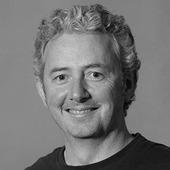
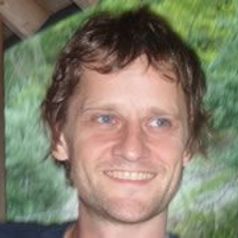
Aidan Hehir
I joined the Department of Politics and IR in 2007; previously I worked at the University of Sheffield. I gained my PhD in 2005 from the University of Limerick. Currently I am a Reader in International Relations and Director of the Security and International Relations Programme. My research interests include humanitarian intervention, the responsibility to protect and international human rights law.
I have published a number of books, articles and book chapters on issues related to humanitarian intervention. I am part of a group which was awarded a grant by the ESRC for a two year project on “The Responsibility to Protect and Prosecute: The Political Sustainability of Liberal Norms in an Age of Shifting Power balances”.
I am also Co-Convenor of the BISA Working Group on Intervention and the Responsibility to Protect. I have regularly contributed to current affairs debates through newspapers, blogs, radio and television.
Currently I am supervising three PhD students and I am a member of BISA, the ISA and the PSAI.
Less ![]()
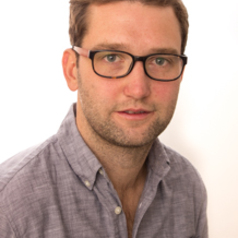
Aidan Horner
Associate Professor in Psychology and Neuroscience, University of York
Psychologist and neuroscientist who conducts research into episodic memory, spatial navigation, forgetting, and sleep. I use experimental psychology, brain imaging (fMRI and MEG), polysomnography, and computational modelling to understanding how the brain allows us to remember things over long periods of time. I am particularly interesting in understanding why and how we forget. Ultimately, I want to know whether we can minimise forgetting when we want to remember things, such as in an educational setting, and increase forgetting when we want to forget, such as when we have intrusive memories of traumatic events.
Less ![]()

Aidan Kierans
Ph.D. Student in Computer Science and Engineering, University of Connecticut
Less ![]()

Aidan McGartland
PhD student and research assistant, Music Theory, McGill University
I am a doctoral candidate at McGill University, where I am also a research assistant and teaching assistant. My background is in musical performance (classical singing), and I conduct research on twentieth musical modernism (focussing on twelve-tone music and neoclassicism) in the disciplines of music theory and music history. I study underrepresented composers, such as women modernist pioneers Margaret Sutherland and Elisabeth Lutyens. For my research, I employ a range of music theories from both tonal and post-tonal theories. One of my main goals as a scholar is to engage with the general public to educate and disseminate research, facilitating increased musical and cultural literacy in society.
Less ![]()

Aidan Moir
Visiting Assistant Professor, Teaching Stream, University of Toronto
Aidan Moir is a Visiting Assistant Professor, Teaching Stream with the Department of Arts, Culture and Media at the University of Toronto Scarborough. She received her Ph.D. in Communication & Culture from York University.
Less ![]()

Aífe Hopkins-Doyle
Lecturer in Social Psychology, University of Surrey
Dr Aífe Hopkins-Doyle is an Assistant Professor in Social Psychology. Her research explores how people understand and experience the social world with a particular focus on the social-cognitive and ideological factors influencing the accuracy of our judgements about gender relations, social issues, and political actions.
She is the co-lead of the Psychology of Gender and Sexuality Lab at University of Surrey.
Less ![]()
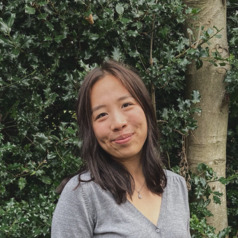
Aileen Editha
PhD Candidate in Law, Queen's University, Ontario
Aileen started her PhD at Queen's Law School in 2021, after obtaining her LLB (Hons) and MJur (without corrections) from Durham University, UK. Her research explores ownership over human biological materials from critical race and feminist lenses. Born and raised in Indonesia, Aileen is an avid reader, serious embroiderer, and serial pet petter.
Less ![]()
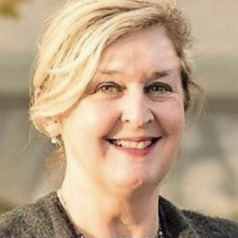
Aileen Ionescu-Somers
Lecturer in Entrepreneurship, Université de Lausanne
Dr. Aileen Ionescu-Somers is currently a Lecturer (Chargée de Cours) at University of Lausanne, Faculté de Hautes Etudes Commerciales. Her academic interests are around entrepreneurship, innovation and business sustainability, and she teaches on topics such as strategic sustainability and strategic innovation. Aileen is also Global Entrepreneurship Monitor’s Executive Director and one of the annual GEM Global Report authors. Prior to this, she led research on sustainability at IMD Business School in Lausanne.
Less ![]()

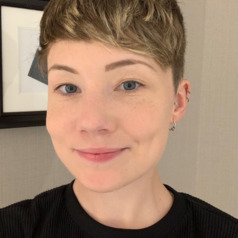
Aimee Bailey
Lecturer in English Language, De Montfort University
I am a discourse analyst interested in the relationship between language and identity, particularly in terms of gender and sexuality.
My research looks at how gender and sexuality are constructed through digital and news media. It makes use of queer theory, feminist theory, corpus linguistics and (multimodal) critical discourse analysis.
I am especially interested in the role of language in issues of inclusion and exclusion, and have examined this in contexts such as queer women's online spaces and the representation of trans athletes.
Less ![]()

Aimee Brett
Lecturer in Ecology & Conservation, Nottingham Trent University
I am a lecturer in Ecology and Conservation at Nottingham Trent University. I am interested in plant ecology and soil science especially in agricultural habitats.
Less ![]()
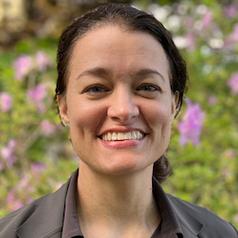
Aimee Eggler
Associate Professor of Biochemistry, Villanova University
Dr. Aimee Eggler is an Associate Professor in the Department of Chemistry and Biochemistry at Villanova University. She is the recipient of a Junior Faculty Excellence in Teaching Award and a Tolle Lege Teaching Award from Villanova. Aimee's research lab, powered by undergraduate and masters students, studies the Nrf2 protein, the master switch in humans for antioxidant, detoxification and inflammatory systems. Her research papers have been cited over 3000 times. Currently funded by two National Institutes of Health grants, these projects assess 1) the effects of Philadelphia subway air pollution on human lung cells, and 2) whether combining a broccoli sprouts supplement with exercise in older individuals can boost age-related declines in Nrf2 activation.
Less ![]()
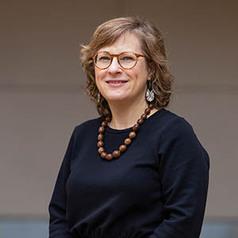
Aimee-Marie Dorsten
Associate Professor of Journalism and Mass Communication, Point Park University
Aimee- Marie Dorsten is a professor who teaches Media Ethics,
Communication Law and Policy, Journalism, and Media Studies at Point Park University
in Pittsburgh, Pennsylvania. Her current research in the feminist political
economy of communication critiques the received historiography of the field
of communication. Her future political economy of communication research
examines representation of the US foster care system and implications
for policy. Her work has appeared in Communication Theory and The
International Encyclopedia of Communication Theory and Philosophy.
Less ![]()

Ainnoun Kornita
Interaction Designer, University of Technology Sydney
I graduated from University of Technology, Sydney and my current job is a UX Researcher in Indonesian government. I have helped the Indonesian government to conduct the research and deliver policy briefs.
Less ![]()

Aino Lilja Petterson
Postdoctoral Fellow of Psychology, University of Oslo
Aino's research interests are mainly in the field of social psychology, specifically, political ideology, and intergroup relations. She is especially interested in different factors that influence people's attitudes toward different groups.
She is a postdoctoral researcher on a project entitled ‘Downplaying difference? How ethnic minorities navigate discrimination in Norway’.
Less ![]()
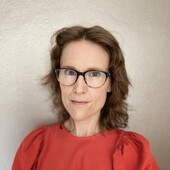

Ainslie Heasman
Clinical Forensic Psychologist, Centre for Addiction and Mental Health, and Adjunct Professor, Faculty of Social Sciences and Humanities, Ontario Tech University
Dr. Ainslie Heasman is a registered clinical and forensic psychologist in Ontario with over 17 years of experience engaging in the assessment and treatment of adults with sexual behaviour problems and/or atypical sexual interests. She received her Ph.D. in Clinical Forensic Psychology from the California School of Professional Psychology in 2005. She is employed full-time at the Sexual Behaviours Clinic at the Centre for Addiction & Mental Health (CAMH) in Toronto, ON and maintains a private practice. She recently led the development of Canada's first national and federally funded child sexual abuse perpetration prevention program, Talking for Change, housed at CAMH. She is a member of the Canadian Psychological Association, the Ontario Psychological Association and is the President-Elect of the Association for the Treatment & Prevention of Sexual Abuse (ATSA).
Less ![]()
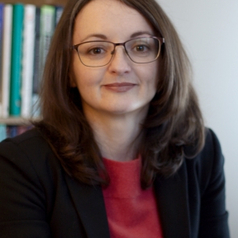
Aiora Zabala
Lecturer in Economics and the Environment, The Open University
I joined the OU Economics Discipline as a Lecturer in January 2022. Prior to that, I was Senior Editor at the journal Nature Sustainability before launch and during its first years. I've taught environmental policy, economics and methods since 2013, mostly at the Department of Land Economy, University of Cambridge, where I'm also Senior Fellow.
I've published research on a range of sustainability policies from environmental and ecological economics perspectives, such as environmental and conservation programs in rural areas in Mexico and South Africa, deforestation drivers at large scales, peatland fires in Indonesia, and public policy for sustainable transport to industrial estates.
I use a range of methods and tools, including R statistical language, Q methodology, econometrics, multi-criteria decision methods, Geographic Information Systems (GIS) and data visualisation.
Research focused on challenges for implementation and effectiveness of environmental and sustainability governance across scales, particularly on two areas: understanding the diversity of views on controversial or conflictual issues, and the spatial variability of impacts. This includes adoption and diffusion of sustainable land-use practices, social implications of biodiversity indicators and drivers and motivations of behavioural change.
I approach these questions using a pluralistic methodological approach. Topics include, among others, the social and economic implications of a large wetland restoration program in South Africa, the political economy of rural livelihood change in Mexico, discourses about peatland fire solutions in Indonesia, the adoption of sustainable agricultural practices in the tropical forest frontier, and multi-criteria evaluation of sustainable transport policies.
Recent work includes analysing acceptability of waste-to-energy facilities (with Univ. of Basque Country), barriers for sustainable aquaculture certification (with Univ. of Tokyo), and the sustainability of post-pandemic recovery policies.
Less ![]()


Aisha Lofters
Associate professor, Department of Family & Community Medicine, University of Toronto
Aisha Lofters is a family physician and Chair in Implementation Science at the Peter Gilgan Centre for Women's Cancers at Women's College Hospital in partnership with the Canadian Cancer Society.
Less ![]()
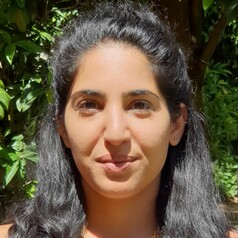
Aisha Malik
Casual Academic/ Research Administration Officer, University of Sydney
Dr Aisha Malik is an academic and research administration officer in the Faculty of Arts and Social Sciences at the University of Sydney. Under the supervision of Professor Lee Wallace, she completed her PhD titled 'Feminist Edutainment and the Pakistan Televisual Commons: A multi-site Ethnography of Urdu Serial Drama'. Aisha is a Fulbright scholar having completed her MFA in Writing for Screen and Stage at Northwestern University; she writes about gender, sexuality, media and race.
Less ![]()

Aisha Moolla
Health economist, University of Sheffield
After completing a medical degree at the University of Cape Town, I did a Master's degree in public health with a focus on health economics.
Less ![]()
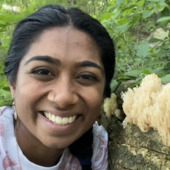

Aisling Hegarty
PhD Researcher, Endocrine Oncology Research Group, RCSI University of Medicine and Health Sciences
Aisling Hegarty is a specialist breast cancer research nurse with the Endocrine Oncology Research Group at Beaumont RCSI Cancer Centre. Working closely with the Breast Family History Clinic in Beaumont RCSI Cancer Centre, Aislings’ research is focused on patients with inherited mutations in the breast cancer genes BRCA1 and BRCA2.
Less ![]()

Aisling Walsh
Irish Research Council Postdoctoral Research Fellow, University of Galway
Aisling Walsh is a Postdoctoral research fellow, supported by the Irish Research Council. She recently completed a PhD in Sociology at the University of Galway, researching decolonial and feminist practices of healing justice in Guatemala, supported by the Andrew Grene Postgraduate Scholarship in Conflict Resolution, Irish Research Council. She previously worked as a Postdoctoral researcher for the Learning in Motion project at the University of Limerick, supported by the Irish Research Council's COALESCE fund.
She has written essays and features for The Guardian, Al Jazeera, The Irish Times, The Sunday Business Post, Open Democracy, Women Under Siege, Electric Literature, Catapult and Literary Hub among others.
My full portfolio is available here: https://muckrack.com/aisling-walsh-1
Less ![]()


Aislinn O'Connell
Senior Lecturer in Law, Royal Holloway University of London
Dr Aislinn O’Connell is a senior lecturer in law at Royal Holloway, University of London. Her research focuses on the interaction of intellectual property law with technology and culture, looking at a range of topics including IP's negative spaces, image-based sexual abuse, technology-based violence, and the intersection of law and technology.
Her current research projects focus on aspects of technology-based violence, including legal regulation of stalkerware, takedown mechanisms for images online, and tortious remedies for image-based sexual abuse.
Less ![]()
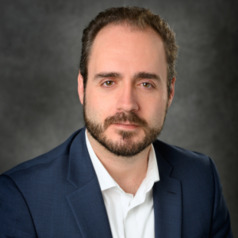
Aitor Aguirre
Associate Professor of Biomedical Engineering, Michigan State University
Aitor Aguirre is an associate professor in the Department of Biomedical Engineering. He joined MSU from the University of California, San Diego, where he focused on large-scale metabolomics and functional genomics applied to human cardiac regeneration, development and disease states.
Dr. Aguirre obtained his B.S. in Biology and M.S. in Biochemistry and Molecular Biology at the University of the Basque Country, Spain. He obtained his Ph.D. in Material Science and Tissue Engineering at the Institute for Bioengineering of Catalonia and the Technical University of Catalonia. He subsequently worked at the Salk Institute as a postdoc in 2011, where he made seminal contributions to our understanding of the genetic mechanisms of cell dedifferentiation, cardiac regeneration, and human development.
Less ![]()

AJ Wood
Professor of law, Australian National University
Dr Asmi Wood has been an academic advisor to the ANU College of Law since 2002 and holds a position in the College as Senior Lecturer.
Asmi gained a Bachelor of Engineering/Science (BE) from The University of Melbourne and a Bachelor of Laws (LLB) with Honours from The Australian National University. He completed his PhD in 2011 and his doctoral thesis is titled The regulation of the use of force by non-State actors under international law. He is also a practising barrister and solicitor in the ACT.
Asmi Wood received the Vice Chancellor's Award for Teaching Excellence from The Australian National University in 2010.
Before commencing work at the College, Asmi worked in private practice and in government, both in Australia and overseas.
Less ![]()

Aja Murray
Reader in Psychology, The University of Edinburgh
Reader in Psychology at the University of Edinburgh. Specialises in mental health and neurodiversity from a developmental perspective.
Less ![]()
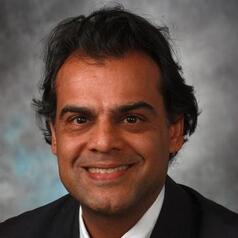
Ajay Chaudry
Research Scholar, New York University
Ajay Chaudry is a research scholar at New York University’s Institute for Human Development and Social Change and Robert F. Wagner Graduate School of Public Services. His work in public policy research and analysis focuses on improving children’s well-being and development, early care and education, human services programs, and immigration. From 2012 to 2015, Chaudry was a political appointee in the Obama administration, serving as Deputy Assistant Secretary for Human Services Policy in the Office of Assistant Secretary for Planning and Evaluation at the Department of Health and Human Services. He also previously served as Deputy Commissioner for Early Childhood Programs at the NYC Administration for Children Services, Director of the Center on Labor, Human Services, and Population at the Urban Institute and as a faculty member at the New School for Social Research School of Management and Urban Policy.
He is the author of Putting Children First: How low-wage working mothers manage child care, co-author of Cradle to Kindergarten: A new plan to combat inequality. He received his A.B. from Columbia University, and M.P.P. and Ph.D. from Harvard University.
Less ![]()

Akhil Bhardwaj
Associate Professor, School of Management, University of Bath
Dr. Akhil Bhardwaj is an Associate Professor (Senior Lecturer) at the University of Bath School of Management, researching issues related to executive decision making and organization failures. He also works with organizations to help develop innovative governance solutions for high-risk environments. Prior to joining academia, Dr. Bhardwaj consulted for banks including BNP Paribas, and worked for CAT, Inc., overseeing assets worth over USD one hundred million.
Less ![]()
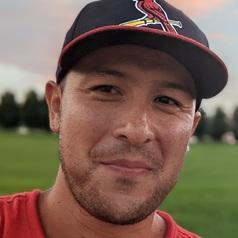
Akira O'Connor
Senior Lecturer in Psychology, University of St Andrews
I am cognitive psychologist who is interested in memory decision-making and subjective experiences of memory (e.g. deja vu and jamais vu). I have used a range of methods to conduct my research, including paper and pencil tasks, computerised tasks, pupilometry, and fMRI.
Less ![]()

Akosua Keseboa Darkwah
Associate Professor of Sociology, University of Ghana
Prof. Akosua K. Darkwah is an Associate Professor of Sociology at the University of Ghana and a former Director of the Center for Gender Studies and Advocacy (CEGENSA) at the University of Ghana. She holds a B.A in Psychology and Sociology from Vassar College and a doctorate degree in Sociology from the University of Wisconsin-Madison. She has been teaching in the Department of Sociology Department at the University of Ghana since 2002.
Her research focuses primarily on the ways in which global economic policies and practices reconfigure Ghanaian women's work. Over the last two decades, she has explored this question with various segments of Ghana's female working population; traders of global consumer goods, factory workers, domestic workers, oil sector workers and farmers. Her work is published in a range of scholarly outlets including Women's Studies International Forum, International Development Planning Review, Journal of Gender Studies, Contemporary Journal of African Studies, Journal of Contemporary African Studies and Feminist Africa.
Less ![]()
- Market Data


















